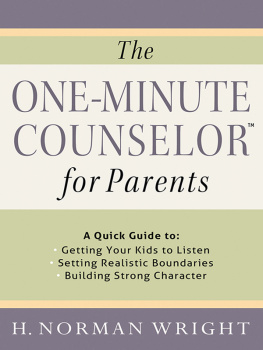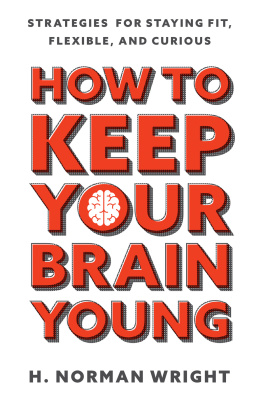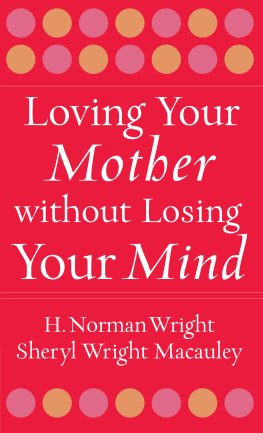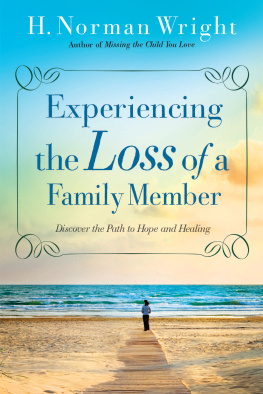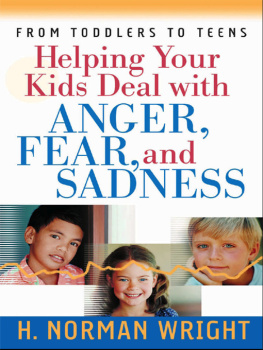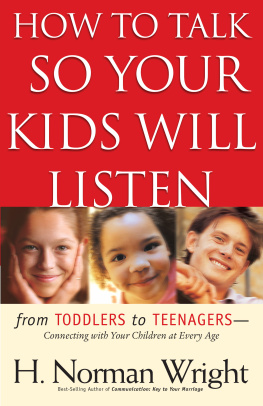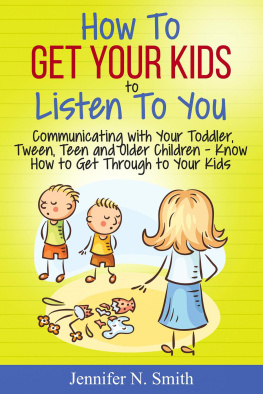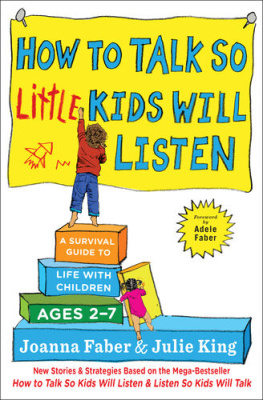

HARVEST HOUSE PUBLISHERS
EUGENE, OREGON
Unless otherwise indicated, Scripture quotations are from the Holy Bible, New International Version, NIV. Copyright 1973, 1978, 1984, 2011 by Biblica, Inc. Used by permission. All rights reserved worldwide.
Verses marked NASB are taken from the New American Standard Bible, 1960, 1962, 1963, 1968, 1971, 1972, 1973, 1975, 1977, 1995 by The Lockman Foundation. Used by permission. (www.Lockman.org)
Verses marked AMP are taken from The Amplified Bible, Copyright 1954, 1958, 1962, 1964, 1965, 1987 by The Lockman Foundation. All rights reserved. Used by permission. (www.Lockman.org)
Verses marked GNT are taken from the Good News Translation in Todays English VersionSecond Edition, Copyright 1992 by American Bible Society. Used by permission.
Cover by Dugan Design, Bloomington, Minnesota
Harvest House Publishers has made every effort to trace the ownership of all poems and quotes. In the event of a question arising from the use of a poem or quote, we regret any error made and will be pleased to make the necessary correction in future editions of this book.
THE ONE-MINUTE COUNSELOR is a series trademark of The Hawkins Childrens LLC. Harvest House Publishers, Inc., is the exclusive licensee of the trademark THE ONE-MINUTE COUNSELOR.
THE ONE-MINUTE COUNSELOR FOR PARENTS
Copyright 2015 H. Norman Wright
Published by Harvest House Publishers
Eugene, Oregon 97402
www.harvesthousepublishers.com
ISBN 978-0-7369-6104-2 (pbk.)
ISBN 978-0-7369-6105-9 (eBook)
All rights reserved. No part of this electronic publication may be reproduced, stored in a retrieval system, distributed, or transmitted in any form or by any meanselectronic, mechanical, digital, photocopy, recording, or any otherwithout the prior written permission of the publisher. The authorized purchaser has been granted a nontransferable, nonexclusive, and noncommercial right to access and view this electronic publication, and purchaser agrees to do so only in accordance with the terms of use under which it was purchased or transmitted. Participation in or encouragement of piracy of copyrighted materials in violation of authors and publishers rights is strictly prohibited.
Contents
What can I do to help my children accept who they are? How can I help my kids avoid feelings of unworthiness?
In my book Raising Emotionally Healthy Kids (written with Gary J. Oliver), we offer these guidelines:
Ask God to help you be aware of how you feel about yourself. Many parents are hard on their kids because of their own unidentified and unresolved issues.
Ask God to help you appreciate the uniqueness of each one of your children and to be aware of their real needs.
Tell your children that you love them daily. Nothing defends against the attacks of shame or unworthiness like the security a child receives from the love and acceptance of his or her parents.
Affirm your children several times a day. Let them know that they are of infinite worth and value and are precious to you.
Give them quality time. This can be especially powerful after they have made a mistake or done something wrong.
Someone suggested that I need to be accountable to my son. Is this correct?
When we change and grow, we show our children that it is all right for them to change and grow. In fact, one of the best ways we can restructure our relationship with them as they mature is to build two-way accountability.
In two-way accountability, a dad would be willing to go to his teenage son and say, Son, Im working on not being anxious and, instead, committing everything to God in prayer. Id like to report my progress to you each evening, and Id like you to ask me occasionally how Im doing. Id also like you to suggest ways I can learn faster. And when you notice me getting anxious about something, please remind me to commit it to the Lord right away. Okay?
When a parent initiates two-way accountability, he or she sets the stage for several things to happen: 1) teenagers will have a model for change that will help make change and growth easier to accomplish; 2) teenagers will have a model for voluntary accountability; 3) parentteen communication will become more adult to adult rather than adult to child.
I get angry. My children get angry. Can you help?
Every child gets angry. So does every parent. But children arent born with control over their anger. They have to learn it.
Teach your children the cause of their anger. Usually anger is a secondary emotion caused by fear, hurt, or frustration. Ask your children why theyre angry, and help them figure it out. Get them to talk about their anger in a positive way. If one of your children doesnt talk about his or her anger, you could say, I can see youre upset. Would you like to talk about it?
Help your children accept responsibility for their anger. Gods Word says, In your anger, do not sin: Do not let the sun go down while you are still angry (Ephesians 4:26). Give your children options for anger responses:
You can tell three of your friends how angry you are.
You can set a timer for 30 minutes, go to your room, and kick and yell until the buzzer sounds.
You can write a letter to God and tell Him how you feel.
My son defies me constantly. Its not just that he disobeysthat I understand. His attitude really gets to me.
Defiance is disobedience with an attitude. This adage is true, and defiance usually pushes parental buttons. Consider these questions and comments:
Is this a constant behavior or now and then? If constant, change your way of communicating with your child until you find a way that works.
Is your child reacting to the current problem or something else?
You could say, It sounds like something else is bothering you. Take time to think about what you really want to say, how you could say it, what you would like to hear from me, and then well get together.
This is a good time to model how to express being upset or angry in a positive manner. Remember it works better to lower your voice and tone rather than increase them.
How can I help my adolescent children stay out of trouble without controlling them?
Consider these suggestions:
Establish family discussion times. Keep them upbeat but meaningful.
Let your children know you want to hear what they have to say. There will be times when you will not share the same opinion or expertise on a subject. Thats okay. To develop his thinking ability, he needs to explore ideas and beliefs. You may not agree with what he says; you can explain your opposing viewpoint.
Set limits on behavior but not on opinions.
Your teenager needs to be responsible for what he does. Dont let him blame others. He needs to accept the consequences for what he does.
Let your teenager make choices. Many conflicts can be defused if you approach your child with several options for a situation.
Id like to have our family get together regularly to share thoughts and ideas. We seem to go in so many directions that were like strangers. Can something like this work?
It can definitely work, but it will take effort on everyones part. Some families hold meetings on a regular basis (once or twice a month). It will help to have a set time. Make your meetings 15 minutes to 45 minutes long. Let members know the estimated time length ahead of time. Future events or present concerns can be discussed.
Here are some guidelines for the meeting that will help make it go smoothly:
Let each person know participation is important.
Next page
